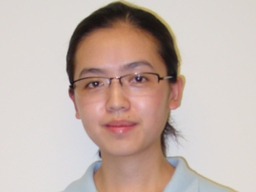Doctoral Dissertation Defense: Yang Yang
Advisors: Dr. Anindya Roy & Drs. Tan and Fang, Georgetown U
Location
Mathematics/Psychology : 106
Date & Time
August 29, 2014, 12:00 pm – 2:00 pm
Description
Title: Bayesian Adaptive Dose-finding Methods in Phase I Drug Combination Trials
Abstract: The dissertation focuses mainly on Bayesian adaptive designs for phase I clinical trials of drug combinations. It includes two specific topics: (1) proposing a novel two-dimensional dose-finding algorithm utilizing drug-drug interaction modeling and (2) incorporating surrogate to evaluate missing.
In a single-agent dose-finding Phase I trial, the key underlying assumption is that toxicity probability increases monotonically with the dose level. However, in multi-agent trial, this assumption may not hold because the drug-drug interaction effect can either decrease or increase the joint toxicity as compared to either one used alone, which may lead to an unforeseen toxicity probability surface. In the first part of the dissertation, we develop a novel adaptive dose-finding approach which can be applied to these kinds of multi-drug combination trials. With this approach, drug-drug interaction and toxicity probability are modeled jointly through a Bliss independence model. Dose escalation/de-escalation decision rules are guided by the posterior estimates of both drug-drug interaction effect and its corresponding joint toxicity probability, which can be continuously updated by sequentially assigning new patients into the trial while more data is being observed. We evaluate the operating characteristics of the proposed method and also compare it with existing methods through extensive simulation studies under various scenarios.
In the second part of the dissertation, we have proposed a Bayesian adaptive dose-finding design with late-onset toxicity outcomes, under a nonignorable missing data mechanism, and where surrogate data are available. We propose a modeling framework to naturally incorporate correlation between toxicity and surrogate given a particular dose combination. Under the framework of joint model, the Bayesian data augmentation method is adapted to predict the missing toxicity outcome. The proposed method is compared with the existing method in a simulation study. Our simulation studies demonstrate our proposed method can successfully improve targeting performance over a variety of practical scenarios and degrees of surrogacy.
Abstract: The dissertation focuses mainly on Bayesian adaptive designs for phase I clinical trials of drug combinations. It includes two specific topics: (1) proposing a novel two-dimensional dose-finding algorithm utilizing drug-drug interaction modeling and (2) incorporating surrogate to evaluate missing.
In a single-agent dose-finding Phase I trial, the key underlying assumption is that toxicity probability increases monotonically with the dose level. However, in multi-agent trial, this assumption may not hold because the drug-drug interaction effect can either decrease or increase the joint toxicity as compared to either one used alone, which may lead to an unforeseen toxicity probability surface. In the first part of the dissertation, we develop a novel adaptive dose-finding approach which can be applied to these kinds of multi-drug combination trials. With this approach, drug-drug interaction and toxicity probability are modeled jointly through a Bliss independence model. Dose escalation/de-escalation decision rules are guided by the posterior estimates of both drug-drug interaction effect and its corresponding joint toxicity probability, which can be continuously updated by sequentially assigning new patients into the trial while more data is being observed. We evaluate the operating characteristics of the proposed method and also compare it with existing methods through extensive simulation studies under various scenarios.
In the second part of the dissertation, we have proposed a Bayesian adaptive dose-finding design with late-onset toxicity outcomes, under a nonignorable missing data mechanism, and where surrogate data are available. We propose a modeling framework to naturally incorporate correlation between toxicity and surrogate given a particular dose combination. Under the framework of joint model, the Bayesian data augmentation method is adapted to predict the missing toxicity outcome. The proposed method is compared with the existing method in a simulation study. Our simulation studies demonstrate our proposed method can successfully improve targeting performance over a variety of practical scenarios and degrees of surrogacy.
Tags:
